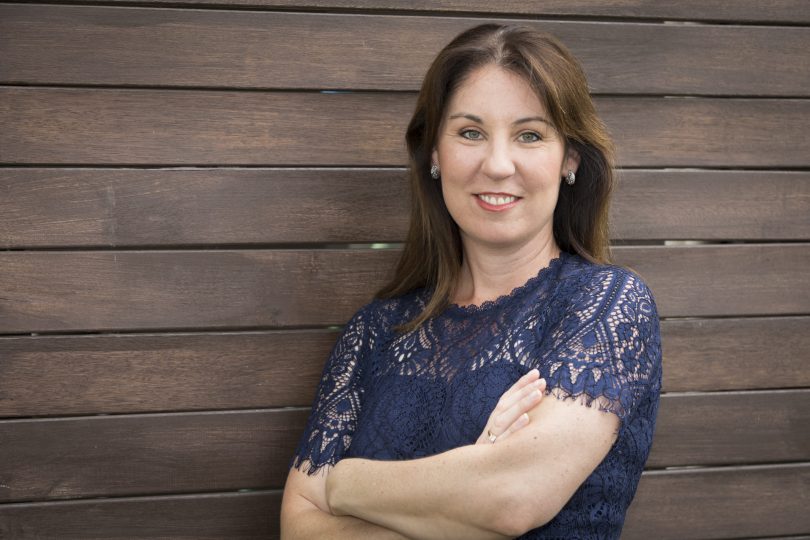
Head of Wills and Estates at Meyer Vandenberg, Tanya Herbertson, says remote witnessing places a greater obligation on lawyers to get it right. Photo: Michelle Kroll.
Lawyers have been urged to be cautious when using a new temporary law that allows the remote or virtual witnessing of legal documents such as wills and power of attorney in the current pandemic environment.
The new law makes it more convenient to progress legal matters when clients are averse to face-to-face meetings due to fears of contracting COVID-19 but there are concerns about family members or others being able to exert undue influence on clients, particularly older ones, when documents are not signed and witnessed in the presence of lawyers.
Wills, enduring powers of attorney, affidavits and other legal documents can now be witnessed over video conference, whether it’s on Skype, Zoom, FaceTime, WhatsApp or any other program.
The witnesses can then sign a scanned version of the document or a counterpart of the document, with a statement endorsing that the document was witnessed in accordance with the new law.
The new law does not permit digital signatures, and the signatures of each party must still be made by pen on paper.
Head of Wills and Estates at Meyer Vandenberg Tania Herbertson said the new arrangements offered much more flexibility but lawyers and the ACT Law Society had struggled with the issue.
”The government has gone with the practicality, that we really need this legislation so we can facilitate the signing of legal documents which otherwise would cause all sorts of issues if they can’t get done,” she said.
The key concern is that someone is out of camera coercing a client to sign a document, typically as an example of elder abuse.
Ms Herbertson said in her experience this was rare but the potential for it remained.
She said the new law placed a greater obligation on lawyers and Justices of the Peace to ensure everything was above board.
”It really boils down to the lawyers who are doing this witnessing,” she said. ”Ultimately you’ve got professional people who are going to be well aware of the obligations to try to do everything they can to ensure the person signing the document is signing voluntarily of their own free volition and fully understands the document.”
Ms Herbertson said it was easier in face-to-face meetings to ensure the integrity of the process because any other people could be expelled from the room and the client spoken to directly so lawyers can be satisfied they understand what they are signing, and they’re not under any undue influence, coercion or pressure to sign a document.
But since the advent of COVID-19, Meyer Vandenberg had had to negotiate delays caused by vulnerable clients concerned about COVID-19 who did not want face-to-face meetings at the office or in their homes.
Ms Herbertson said the firm had experienced a flurry of people who wanted to update their wills and powers of attorney because they were worried about contracting COVID-19.
She said it was easy enough to take instructions and update people’s docs via Zoom, but the signing and witnessing of documents remained a hurdle.
”When we didn’t have this new law, the only thing we could do is to get you to sign in an informal manner with us witnessing over Zoom, or get people not necessarily qualified to witness it for powers of attorney, for example, as an informal document,” Ms Herbertson said.
But that meant it was not a legally valid document and would require a special application to the court.
”Having this come though makes things much easier for us,” Ms Herbertson said.
But she is happy that it is only a temporary measure that will lapse after 12 months because ”it was a real balancing act”.
The ACT Law Society says lawyers should use the witnessing requirements with extreme caution.
President Chris Donohue, who has been lobbying the government for years to do more on elder abuse, said while the measure had attractions it would increase the risk of older people being financially exploited.
”It is diametrically opposed to the notion of having such documents properly explained and witnessed by competent persons,” he said.
Mr Donohue said the new measure could provide an opportunity for innovative people to take advantage of the situation.
He acknowledged the necessity of the situation but said lawyers should only use it as a necessity and not as a matter of course.
Meeting via video link had its limitations, including not knowing who else was in the room or nearby.
”If practitioners adopt the video link system as a normal thing they will fall into error and miss the opportunities to properly advise a client,” Mr Donohue said.
He said there was also the issue of witnesses who had little or nothing to do with a client.
Original Article published by Ian Bushnell on The RiotACT.


What's Your Opinion?